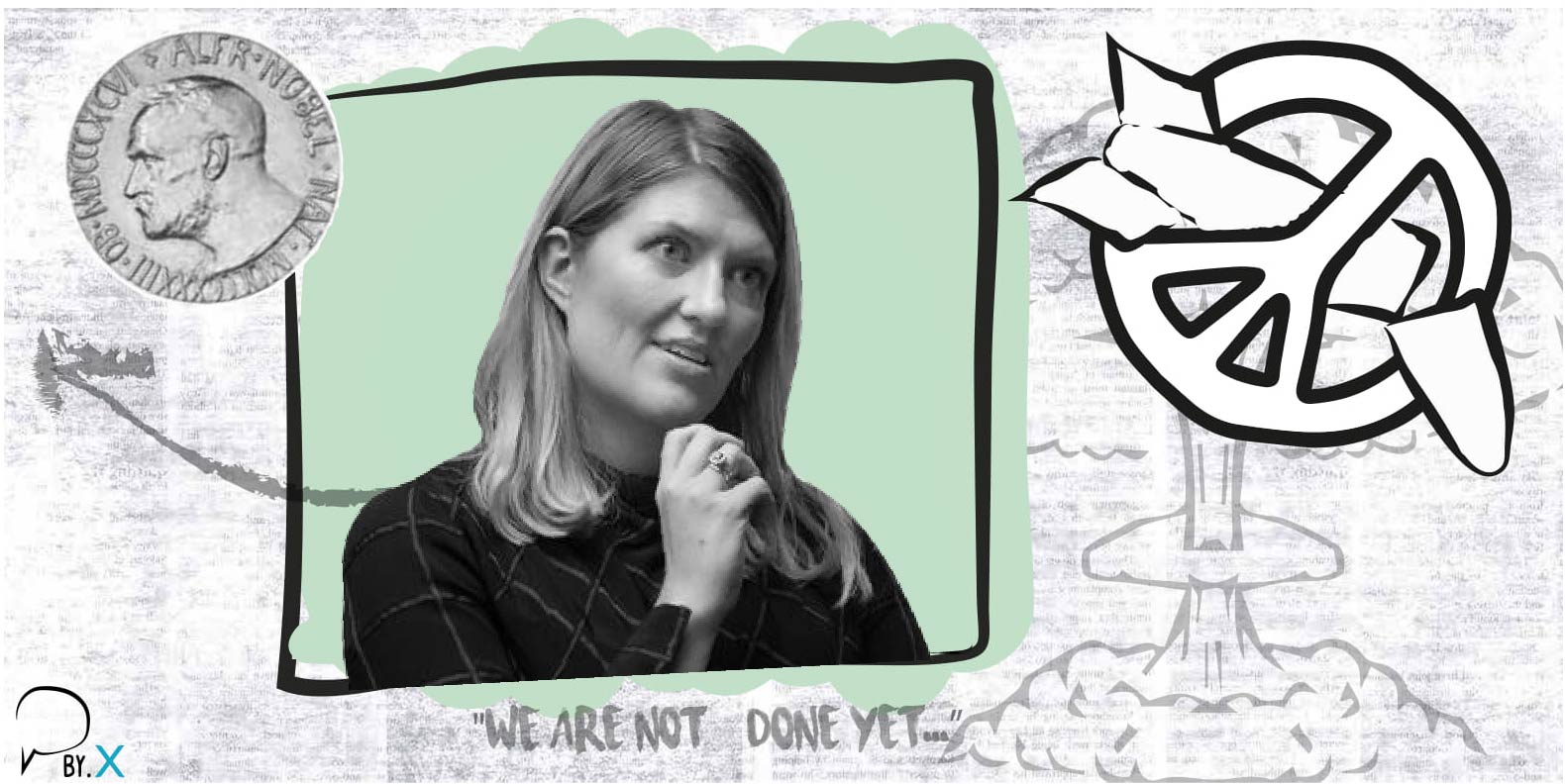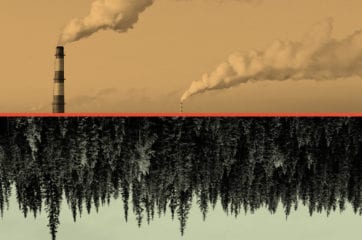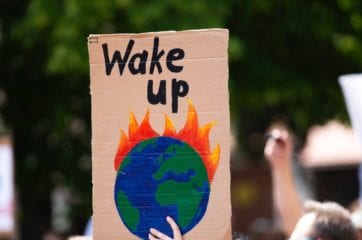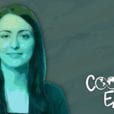“The Nobel Prize is an accomplishment for civil society in general, and I hope that people working on other issues take a bit of credit for this as well.”
This week on the podcast, we are doing things a little differently. Our guest does not work in the climate field, but is the Executive Director of the organization awarded the Nobel Peace Prize in 2017. Beatrice Fihn leads the International Campaign to Abolish Nuclear Weapons (ICAN), which was awarded the prize for its work in highlighting the humanitarian cost and consequences of nuclear weapons. Once again this year, the Bulletin of Atomic Scientists have identified the two most existential threats facing humankind as being climate change and nuclear weapons; for this reason our conversation with Beatrice is relevant and incredibly useful in how we conceptualize and advocate for these issues.
Beatrice is humbled and encouraged by the recognition from the Nobel committee to what she calls civil society and ordinary people working to change things against all odds. While ICAN was awarded the prize for its “work to draw attention to the catastrophic humanitarian consequences of any use of nuclear weapons” and our “groundbreaking efforts to achieve a treaty-based prohibition of such weapons”, it truly is a testament to the power of activism in civil society more broadly.
Due in part to ICAN’s efforts, the United Nations adopted a treaty to ban nuclear weapons, by a vote of 122 to one. (69 nations did not vote.) In order for the treaty to take effect, 50 countries must ratify it. So far, 22 have. “We want to use law to drive change, and create a law that is equal and undoes 70 years of brainwashing of the international community believing these weapons are necessary.”
We spoke about the challenges of advocating for a cause that has an organized and powerful opposition, a trait both nuclear weapons and climate change share, the rising trends of populism around the world, and why despite it all she remains hopeful and optimistic about the future. “Things are already so much better, the world is better than it has ever been, but we forget that because we don’t hear it in the news constantly. Good news does not make the news, and with social media too, it can be hard to escape this mindset that everything is terrible.”
Fihn is a mother of two and an outspoken feminist. “I don’t believe women are more peaceful than men,” she says. “But they are assigned roles in society, and they are caretakers. So they think, who’s going to clean up after the war?”
Reading behind this episode:
Bulletin of Atomic Scientists – 2019 Doomsday Clock









